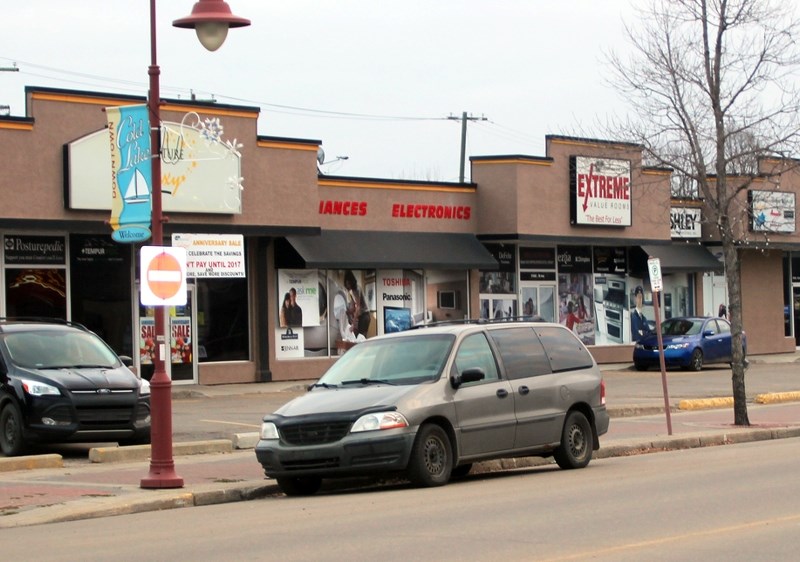Unemployment rates continue to climb in Cold Lake, as local businesses experience a significant drop in sales, further fuelling a downturn initiated by low oil prices.
“The rising unemployment in the province and in our region is very much a growing concern right now,” said Coun. Bob Buckle, who is also the owner of Original Joe's in Cold Lake. “The attitude on the street is I'm going to say very concerned and not overly optimistic moving forward.”
Since dropping by 0.7 per cent from eight per cent in July to 7.3 per cent in October, unemployment in the economic region of Wood Buffalo – Cold Lake jumped to 8.1 per cent in November, according to data from the Government of Alberta.
“Everybody's shaving the bottom line in terms of the oil service side and oil producers, so they've been hunkering down,” said Mayor Craig Copeland. “Everybody's right now in a sort of a holding pattern, just hunkering down, really conserving cash.”
Job losses were primarily concentrated in high paying sectors like oil and gas, affecting many in the region given the high number of Cold Lake residents working in the energy sector.
“To put the oil and gas industry back to where it was previous to this, it's going to take a large effort because attracting labour for them is one of their biggest challenges in periods when investment is good, so the fact that they've laid off so many tells me that they're not looking at necessarily ramping up anything if prices return,” Buckle said.
Although oil prices have dipped twice in the previous decade, most noticeably during the recession of 2008/'09, Buckle believes the main difference this time is how companies have responded to lower prices.
“I fear that even if oil prices were to return tomorrow, I'm not sure if many of the billion dollar projects that have been shelved to date would be initiated just based on the overall investment climate.”
Knockoff effects from belt-tightening measures at oil companies have been felt across industries in the region. Sales were down in the retail and hospitality sector, as the typically lucrative holiday shopping season failed to bring out shoppers who are spending more on needs rather than wants. Some businesses reported sales being down between 30 to 40 per cent in the past year.
“Do I have the opportunity to grow my business at the present time? Absolutely not,” Buckle noted. “We're obviously going to at the end of the day have to adapt and change and it's going to probably mean price increases for our consumers, maybe reduction in services and hours of operations.”
Adding to Buckle's concerns is the recently mandated hike in minimum wage, which is set to increase to $15 per hour, increases in liquor prices and a 20 per cent hike in corporate taxes.
“Unfortunately I think we're going to see much of the same, if not worse; I think 2016 for a lot of businesses and small businesses is going to be about survival.”
Although sales have slowed down, Cold Lake city council is trying to woo as many businesses as possible to help weather the economic storm. Further to this, council decided to halt any tax hikes for both residents and businesses. Copeland also pointed out that several businesses like O2's Taphouse and Grill are setting up shop in the city, a sign that it's not all doom and gloom.
Alberta employment declined by 14,900 jobs in November, according to Statistics Canada's monthly labour survey reports. This constitutes the largest decline in just over a year, as Alberta's unemployment rate rose by 0.4 per cent to seven per cent in November and is now close to the national average.
“When oil and gas was so smoking hot people were so busy in oil and gas that they didn't have time to look in different areas,” said Alberta HUB executive director Bob Bezpalko. “Now it's some breathing room that companies of all sizes are taking a breath right now checking out what possibilities exist and going from there.”
He added, “This really brings to the forefront that we need to look at the other areas so that 90 per cent of our revenue isn't coming – just to pick a number out of the air – out of one industry, so if that industry feels a downturn we're going to get hit harder.”
As a consequence of the downturn, Bezpalko feels that Alberta will see a surge in other industries such as agriculture and tourism.
“I think it's a bit of a pipe dream to think that we can diversify our economy to make (up for) the shortfall on oil and gas,” Buckle said. “Our strength in this province is oil and gas and we should be taking the necessary steps to promote and to build off of that sector because that's the one that brings home the pay cheque, that's the one that puts the bread on the table.”
Copeland also feels that in order to bounce back, the province needs to start pushing pipelines and cultivating a pro-investment climate for energy companies.
“We should be really pushing the oil patch, that's what my big concern would be right now and it's going to be provincial and federal policies that will probably have the biggest impact in our area in 2016.”



